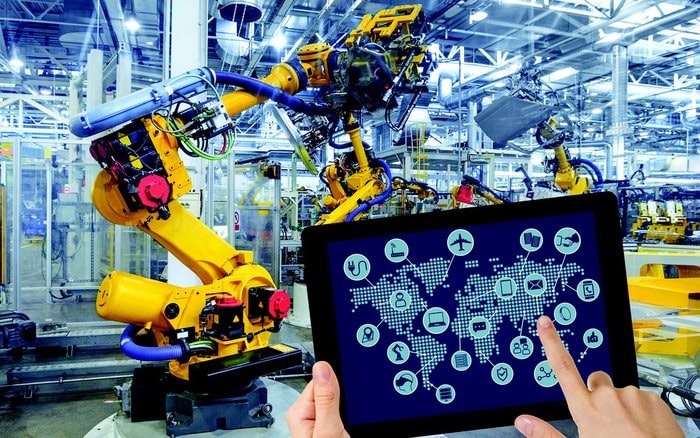Development of human resources in science, technology and innovation
Human resources in science, technology and innovation are decisive factors for Vietnam to successfully implement the goal of industrialization and modernization of the country. Fostering a contingent of intellectuals, connecting institutes - schools - businesses is an investment in the future. It is also the key to unlock endogenous strength for sustainable development.
Human resources in science and technology - the foundation for innovation
In every period of development, man has always been the center of scientific progress and the driving force of all change. If digital infrastructure is the back-bone and institutions are the lifeblood, then human resources are the heart of the innovation system. For Vietnam, the development of human resources in science and technology is not only an objective requirement, but also a prerequisite for the successful implementation of major strategies such as digital transformation, semiconductor industry development, artificial intelligence and high technology.
Currently, the country has more than 1.5 million workers working in the field of science and technology, of which about 70 thousand people are directly involved in research and development. However, this number is still modest compared to the size of the population and development needs.
Many experts assess that Vietnam has the potential for young and creative human resources, but it has not been exploited and used effectively. The linkage between training institutions, research institutes and enterprises is still fragmented, making it difficult for research results to go into production, while businesses lack high-quality human resources.

To solve this problem, it is necessary to have an overall policy on developing human resources in science and technology in the direction of openness, flexibility and associated with reality. The education and training system must innovate its content and methods, focusing on research skills, creative thinking, and the ability to apply technology. Training programs for engineers and scientists must be designed in association with market demand, with global technology trends such as artificial intelligence, big data, renewable energy, and biotechnology.
Along with that, the State needs to have a mechanism to attract Vietnamese experts abroad, encourage them to participate in teaching, technology transfer, and strategic advising for domestic innovation projects. This is not only a "brain-return" but also an opportunity for Vietnam to connect global knowledge, create a foundation for the development of high-quality human resources and be capable of deeply participating in the international value chain.
Fostering a contingent of intellectuals - arousing the driving force for national development
The team of scientific and technological intellectuals is the core force in building the knowledge economy. They are not only the ones who do research and create new technologies, but also the ones who lead and spread knowledge to the community. A country is only really strong when it has a strong team of intellectuals, who are respected and promoted in the right capacity.
Over the years, the Government has issued many policies to develop human resources in science and technology, such as the National Strategy on Human Resources in Science and Technology for the 2021-2030 period, key programs to support young scientists, scientific and technological enterprises and innovative start-up ecosystems. However, the implementation in some places is still in form, lacking cohesion with production practices, making brain-resources not fully promoted.
One of the important solutions is to build a "three-stakeholder" cooperation mechanism - the state, schools and entrepreneurs. Research institutes and universities must become innovation centers, where human resources are trained with both theoretical knowledge and practical skills, ready to participate in the high-tech labor market. Enterprises need to play a leading role in ordering research and applying scientific results, and at the same time be a place to nurture and employ talents. When cooperation is promoted, scientific knowledge will no longer be on paper, but will become the driving force for production and development.
In parallel with domestic training, fostering international integration skills, the ability to work in a multicultural and multilingual environment is also an urgent requirement. In the global era, scientific and technological human resources not only need to be good at their profession but also understand management, international law, and sustainable innovation.

The development of human resources in science and technology must also be associated with building a healthy working environment, encouraging creativity and honoring knowledge. When scientists are protected by copyright, properly remunerated and recognized for their contributions, they will devote themselves wholeheartedly to the country. An innovation ecosystem is only sustainable when there is trust, respect and fair mechanisms for scientists.
Investing in knowledge is an investment for the future
Developing human resources in science, technology and innovation is not only the task of the science and technology sector, but also a national strategy. Men are both the creative subjects and the ultimate goal of all development policies. When people are equipped with knowledge, skills and opportunities to contribute, the nation will have the internal strength to rise.
In the context of a world competing with knowledge, Vietnam needs to shift from "going behind to learn" to "accompanying to create". That can only be done when the country has a strong team of human resources in science and technology, courage, aspirations and an environment to promote talents.
It can be said that investing in people is the most profitable investment. Every scientist is fostered, every expert is well-employed, every student is inspired to be creative – all of them are a seed of knowledge that contributes to nurturing the future. When knowledge becomes the foundation and innovation becomes culture, Vietnam will be strong enough to go far and steadily in the digital era, deeply integrating into the development flow of humanity./.
Translated by Vietnam Journal of Science and Technology (VJST - MOST).
